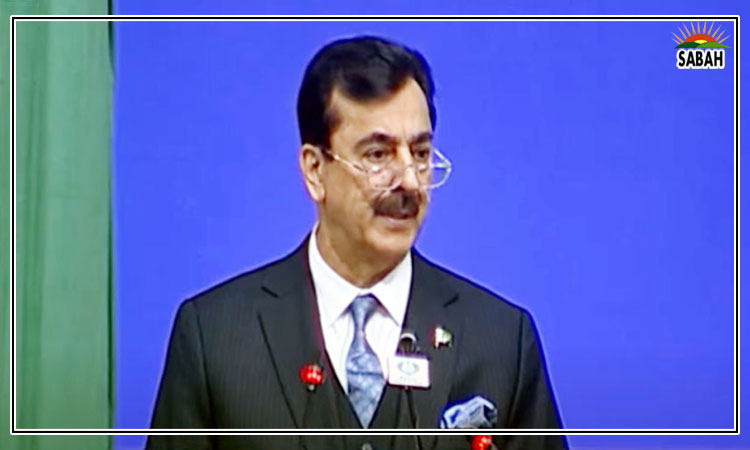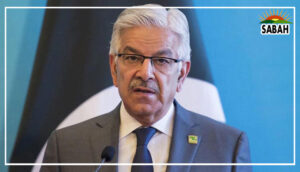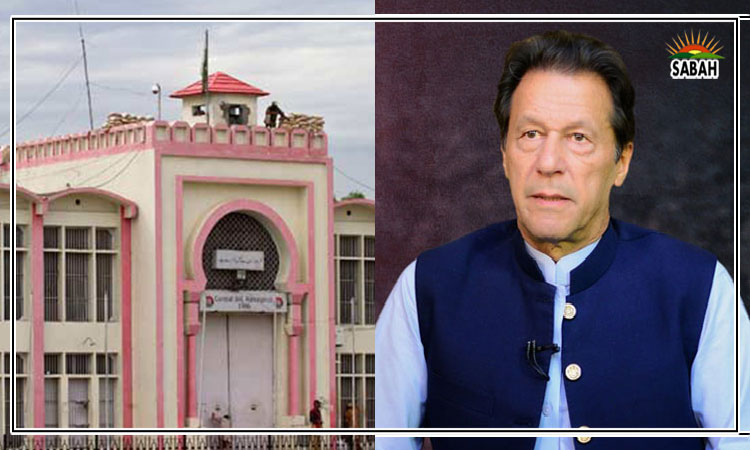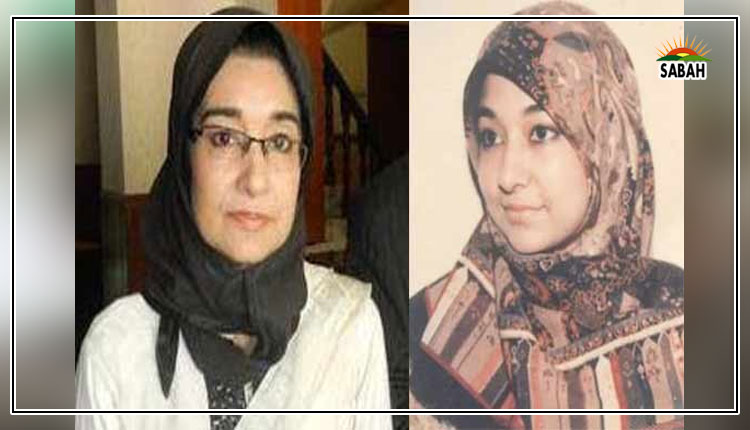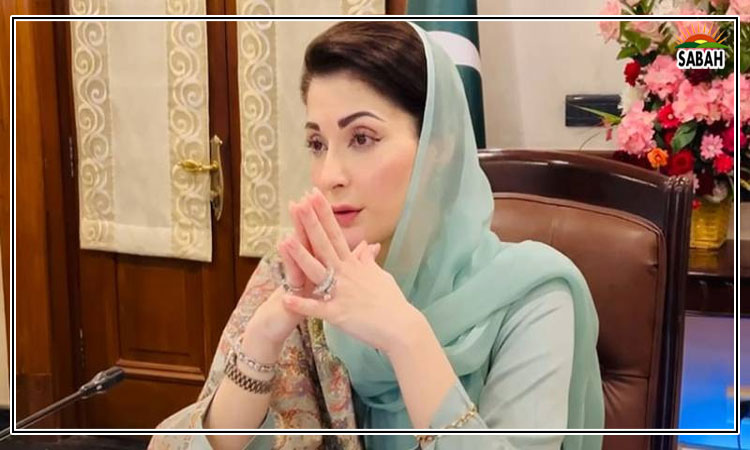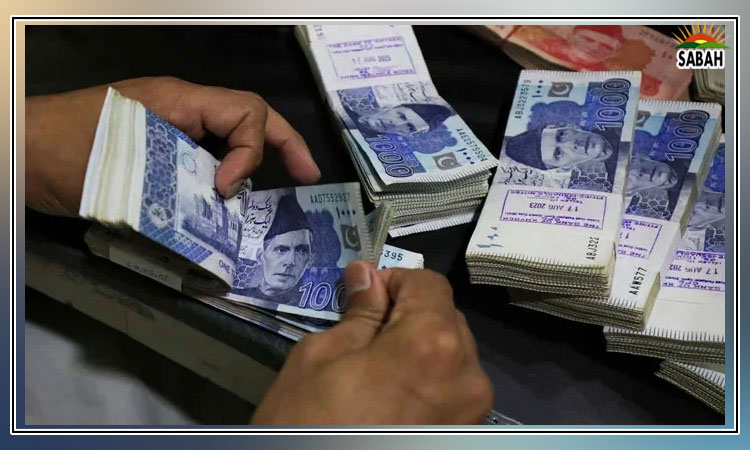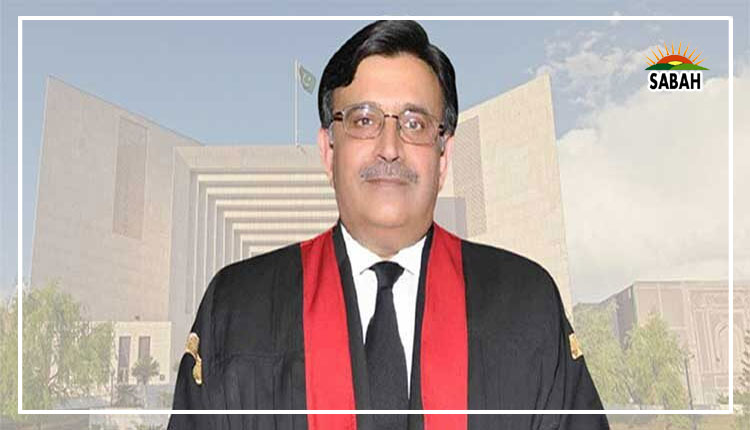Supreme Court says it did not want to interfere in the legislation process
ISLAMABAD, August 19 (SABAH): In the National Accountability Bureau (NAB) law amendments case, the Supreme Court of Pakistan has stated that it did not want to interfere in the legislation process and will avoid interfering in the political matters for ensuring the rule of law and Constitution.
While expressing its concerns, the court further noted that the members sitting in assembly are legislating for the sake of their personal benefits, adding that the court will be very careful about the petition filed against the NAB’s amendments case.
Chief Justice of Pakistan Justice Umar Ata Bandial has said that they asked the Pakistan Tehreek-e-Insaf (PTI) to play their part while remaining part of the assembly but they boycotted it. A three-member Supreme Court bench, headed by Chief Justice of Pakistan Justice Umar Ata Bandial and comprising Justice Ijazul Ahsan and Justice Syed Mansur Ali Shah, conducted the hearing on the petition filed by
Pakistan Tehreek-e-Insaf (PTI) Chairman and former prime minister Imran Khan against the NAB’s amendments case on Friday.
During the hearing, counsel for Imran Khan, Khawaja Haris Ahmed sought time from court for submitting a writing reply as well as told the court that due to coronavirus attack; he could not submit a written reply.
Chief Justice Umar Ata Bandial remarked that superior judiciary has been criticizing the NAB law in its verdicts. He stated that 90 days remand is not allowed anywhere while in the criminal cases more than 14 days remand is not permitted.
Moreover, the Chief Justice while giving remarks said that the court will shun from interfering in the political matters and only will take stock of the amendments relating to the basic rights. “If the amendments proved to be making fun of the accountability process then it will be termed as breach of basic rights, as in most amendments, the accused were given favours,” he further remarked.
“Evidences of plea-bargain have been declared unacceptable, and added the arrest is not prohibited in the criminal system as it is carried out in the light of level of severity of the crime,” the Chief Justice added.
While giving his arguments, counsel for the federal government Makhdoom Ali Khan Advocate said that the accused are released; however, signs of accusations do not wash away. The superior judiciary doesn’t confirm the sentences given by the NAB courts, he further argued.
The Chief Justice stated the country is passing through unusual circumstances as 150 members of the previous government have boycotted the assembly. He further remarked they had advised the PTI to play its role by being part of assembly whereas the members who are still part of assembly should not pass legislation in their favor.
The Chief Justice remarked that the court doesn’t want to interfere in the legislation process and took suo motu notice on the interference into the investigation process. “While taking the record of high profile cases, we are only seeing whether these cases are proceeded or not. We will fully support all the institutions working under the Constitution. The court while hearing cases in unusual situation is not enjoying it,” he explained.
Counsel for the federal government argued that the US Supreme Court always stands by the elected government. To this, Justice Syed Mansoor Ali Shah replied that example relating to US Supreme Court doesn’t seem justified.
Justice Syed Mansoor Ali Shah remarked that the political environment outside the court keeps on changing “should this political environment affect the atmosphere inside the court? Does the court not maintain the environment of the Constitution and the law?”
Moreover, the CJP said that the supreme judiciary has been critical of the NAB law in its decisions, adding that nowhere in the world is a 90-day remand permitted. “There is no remand of more than 14 days in criminal cases anywhere. The conviction rate in Japan is 99 percent,” he said. Later on the court adjourned further hearing of the case till September 1.


